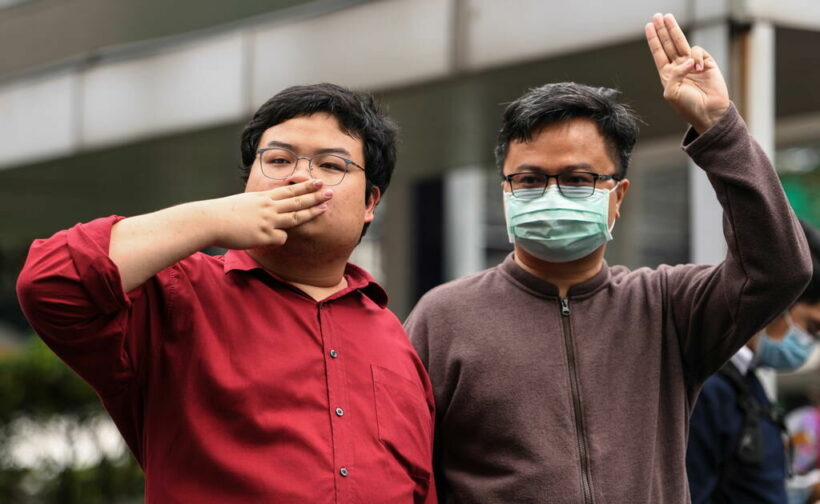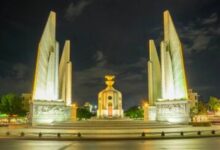Bangkok court rejects bail applications of prominent pro-democracy activists

Bail applications from anti-government activists Anon Nampa and Parit “Penguin” Chiwarak have been rejected by the Bangkok South Criminal Court. The decision follows an earlier ruling by the Criminal Court that granted bail of 2,079,000 baht in relation to other charges. The pro-democracy Ratsadon group did not have sufficient funds to pay the requested amount and launched an online crowdfunding effort, which quickly raised around 10 million baht.
However, Thai PBS World reports that the Bangkok South Criminal Court rejected Anon’s bail request on the grounds that there are several cases pending against the human rights lawyer, adding that if released on bail, he was likely to offend again. The court also ruled that his reason for requesting bail – that he needed to earn a living to support his family – was insufficient.
Meanwhile, Norasate Nanongtoom from Thai Lawyers for Human Rights says the court has ruled that Parit must show evidence that he is registered to attend university, including presenting his university-issued class timetable.
The Criminal Court ruled that both activists are banned from taking part in any activities considered offensive to the Thai monarchy or the court, as well as being prohibited from leaving their homes between the hours of 9pm and 6am. Both men must also wear electronic ankle bracelets and have been ordered not to obstruct court proceedings.
Anon and Parit were also granted bail by the Bangkok South Municipal and Ayutthaya Provincial courts in relation to other cases, meaning only the Bangkok South Criminal Court has rejected their applications.
In related news, Thai PBS World reports that another 2 activists, members of the Talugas protest group, were also denied bail in relation to an anti-government protest last October. Yesterday, the authorities arrested another activist, Chinnawat “Bright” Chankrajang under section 112 of the Criminal Code, more commonly known as lèse majesté. Thailand’s strict lèse majesté law prohibits criticising, defaming, or otherwise insulting the monarchy and carries harsh penalties, including up to 15 years in prison.
SOURCE: Thai PBS World
Latest Thailand News
Follow The Thaiger on Google News:


























